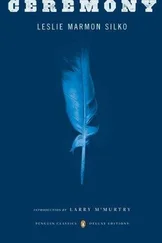She sat on the floor beside the cage and watched the parrot.
“How do you like the name Rainbow?” she asked. The parrot looked at her steadily, and daintily trimmed its claws. The parrot book in the Abbotts’ library had color pictures of wild parrots in jungles surrounded by great trees and lovely flowering plants. The parrot was so far from his beautiful home; no wonder he didn’t want to speak!
Sometimes Indigo woke in the middle of the night and could not remember where she was — the smell of burning coal caused her to confuse for a moment the steamship with the train — but then she’d feel the roll of the ship and see the outline of the parrot’s cage and she knew immediately where she was. Sometimes in the middle of the night when she woke and reached for the glass of water she saw the parrot watch her. She whispered to the parrot about his family — Edward said the parrots lived in large families in giant dead trees deep in the rain forest. Indigo talked to the parrot about how she imagined the baby parrots played hide-and-go-seek with one another in the big tree. She pulled the blanket up over herself and the parrot cage to form the safe, cozy nest Indigo imagined for the parrots. She pretended she and the rainbow bird were baby parrots in the nest together and all their older sisters and brothers, all their grandfathers and grandmothers — everyone was there with them in one towering tree.
The ship encountered more rough seas, and they discovered that Indigo felt the seasickness less sharply when Hattie talked to her or read her a story. They discussed what Linnaeus and his kitten might be doing right at that moment; scampering up the wisteria in the glass house perhaps. As the ship rolled, sweat broke out on Indigo’s forehead; she asked Hattie please to read more of the adventures of the naughty Chinese monkey born from stone.
Already the Chinese monkey was up to mischief, taking bites from the apples of longevity, stealing the golden pills of immortality and gobbling them down with the special wine for the banquet of the immortals; Heavenly King Li sent heavenly soldiers to trap the monkey on Flowers and Fruit Mountain. Indigo leaned back against the pillow with her eyes closed. The seasickness began with a swelling pressure in her ears that ached throughout her head. She wanted Hattie to go on and read the story of the capture of the rebellious monkey by the Buddha. The capture alone took five pages, and Hattie began to tire.
“Monkey refused to believe what he saw and was just about to jump away when Buddha turned the fingers of his hand into five mountains, which buried the rebellious Monkey.” Hattie paused and glanced to see if the child was asleep; but just then Indigo’s eyes opened wide and she said, “Don’t stop now! The monkey is buried under five mountains! Read how he gets away!”
The rolling of the ship had subsided and Indigo’s face was not as pale; Hattie glanced at the pages ahead and shook her head.
“Monkey doesn’t seem to escape for at least six pages — it’s too late to read it now. Tomorrow,” Hattie said, firmly closing the book.
“Good night, and sweet dreams.”
“Sweet dreams,” Indigo replied.
She tucked the covers around Indigo and kissed her forehead. The parrot’s head was tucked under its wing but a glittering eye watched as she put out the light. It was after nine so she did not disturb Edward in the adjoining cabin, but she did not feel like going to bed quite yet. During the afternoon she felt an odd lethargy that slowed her motions and demanded her conscious effort to climb the steps to the ship’s dining room. She recognized the feeling at once: it was that old companion of melancholy, inertia, which the doctors blamed on her reading and writing and lack of exercise.
When she was first stricken, the doctors mistook her lethargy for a more serious illness; fortunately her introduction to Edward at the ball banished the symptoms. Surely the melancholy had not returned!
How ironic if the malaise were to return during their visit with Aunt Bronwyn. In the months she suffered most from melancholy, the letters from her grandaunt had meant a great deal to Hattie. Aunt Bronwyn followed the latest theories of the mind and emotions, and it was her observation Hattie’s illness could be cured if she completed her thesis. After the announcement of their engagement, Hattie’s melancholy lifted and she was reluctant to return to the notes and manuscript for fear the anxiety and hopelessness might reoccur. Once or twice during Edward’s absence a fatigue tried to take root, but Hattie warded it off with cool baths and green tea. Since Indigo’s arrival, Hattie felt so fit and was in such good spirits she assumed herself cured. After travel and a visit with one’s family, fatigue was not unusual, but Hattie also felt a vague discouragement that she could not articulate, a feeling similar to the one that preceded her illness before.
She summoned all her energy to break free of the heaviness in her limbs to pick up the portfolio. She did not open it at once; the very sensation of its weight in her hand brought back vivid memories. So much had seemed possible in the beginning; Hattie took pages and pages of notes — copying entire sections of Dr. Rhinehart’s translations. She shuffled through the pages of notes until she found the quotations from the Coptic manuscripts she intended to use to illustrate her thesis. Here it was! the passage that had excited her so much, and inspired her thesis — the same passage that caused such consternation on the thesis committee:
I was sent forth from the power,
and I have come to those who reflect upon me,
and I have been found among those who seek after me.
Look upon me, you who reflect upon me,
and you hearers, hear me.
You who are waiting for me, take me to yourselves.
And do not banish me from your sight.
And do not make your voice hate me, nor your hearing.
Do not be ignorant of me anywhere or any time. Be on your guard!
Don’t be ignorant of me!
For I am the first and the last.
I am the honored one and the scorned one.
I am the whore and the holy one.
I am the wife and the virgin.
I am the mother and the daughter.
I am the members of my mother.
I am the barren one
and many are her sons.
I am she whose wedding is great
and I have not taken a husband.
I am the midwife and she who does not bear.
I am the solace of my labor pains.
I am the bride and the bridegroom,
and it is my husband who begot me.
I am the mother of my father,
and the sister of my husband
and he is my offspring.
How naive she had been to think her thesis topic would be approved! Hattie could smile now, but at the time of the committee’s decision her entire world seemed to have come apart, especially after the dreadful encounter with Mr. Hyslop! Hattie had planned to continue auditing classes until term’s end at Christmas, but the morning following the encounter, the symptoms appeared.
The doctor was called, and with one look he pronounced her condition female hysteria, precipitated by overstimulation. He prescribed complete rest and above all no books. Hattie refused to give up all books, but she no longer had the heart to read early church history; it was obviously incomplete, and the orthodox church had no intention to ever acknowledge the other gospels. But now she felt as if she were reunited with an old friend as she shuffled through the pages. She felt the old excitement stir; she wanted to learn more about the Illumined Ones, those to whom Jesus appeared and whom he instructed in secrets not revealed to the bishops or cardinals or the pope himself.
The parrot’s damage to the train case was not discovered until Hattie began to pack her toilet articles, and by this time they were only a few hours from docking in Bristol. They were in sight of land, and Hattie was so relieved at their safe Atlantic crossing she only laughed when she saw how carefully the parrot removed the brass tacks.
Читать дальше












